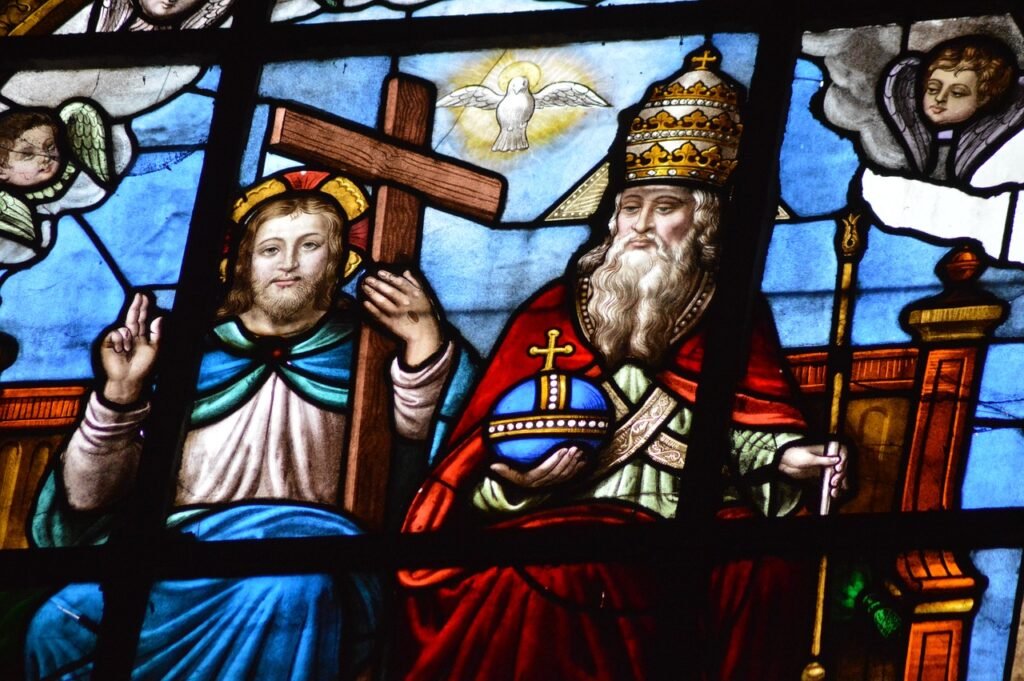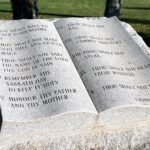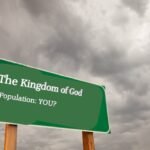The Trinity
-Nowhere in the Bible is the word “Trinity” used.
-Nowhere in the Bible are the words “Holy Trinity” used.
-Nowhere in the Bible is the Holy Spirit called a “person”.
-In all his epistles the Apostle Paul never once greets the Holy Spirit in his salutation. Paul only greets God the Father and Jesus. As an example, Phil.1:2 says, “Grace and peace to you from God our Father and the Lord Jesus Christ.” No mention of the Holy Spirit. Paul uses this pattern in every one of his epistles.
– Not one of the General Epistles written by the other apostles greet the Holy Spirit.
-If the Holy Spirit was a person of the Godhead, would it not feel slighted by this lack of greetings written by the founding apostles of Christianity in the Word of God?
-The doctrine of the Trinity (triune nature of God) was never taught by the early apostles and was not a doctrine of the church.
Today’s Christianity makes belief in the Trinity a staple test of faith. Is this “test of faith” a true Chrisitan doctrine? Theologians say, the Doctrine of the Trinity is, “the highest and most mysterious doctrine of the Christian religion. It declares there are three Persons in the Godhead, or divine nature—the Father, the Son, and the Holy Ghost, and that ‘these three are one true, eternal God, the same in substance, equal in power and glory—although distinguished by their personal properties.’”. The New Cyclopedia of Universal Knowledge 1889.
The doctrine of the Trinity did not begin to develop in the Universal Catholic Church until sometime in the 2nd century and then only “gradually” (Unger’s Bible Dictionary) over a long period of time and it contrasted with Judaism and early church doctrine. Unger also points out the Trinitarian doctrine “is preeminently one of revelation” i.e. it was not in the Bible nor taught by the early church but developed over time to fit the needs of the growing Catholic doctrines in contrast to the doctrines of the early apostles. “The doctrine is to be accepted by faith in the divine revelation”. Unger’s Bible dictionary is showing us the doctrine of the trinity is not scriptural but a revelation over time to the Universal Catholic Church of Rome. Not until the Council of Nicaea in 325 A.D. was this doctrine officially a part of the “church”. The Council of Nice “adopted the formal statement of the consubstantiality of the Father, the Son, and the Holy Spirit, while maintaining the distinction of personality.” Unger’s Bible Dictionary.
The Church of God 7th Day (COG7) does not teach the triune nature of the Godhead (Trinity). In the COG7 doctrinal book, This We Believe, the Church states, “Thus, it is better to think of the Spirit as the personal presence of the Father and Son on earth and within believers, rather than as a third person of the Godhead in the same sense as Father and Son.”
The Holy Spirit is the essence of God that proceeds forth to do the will of the Father and the Son. The Holy Spirit is what God and Jesus use to inspire, create, lead and fill Christians with God’s love. The Holy Spirit is not a part of the Godhead, but it is the power used by God and Jesus to fulfill their work.
For further study see COSCOG7 Staff Difficult Scripture I John 5:7-8
COSCOG7 Mike Wallace Trinity























